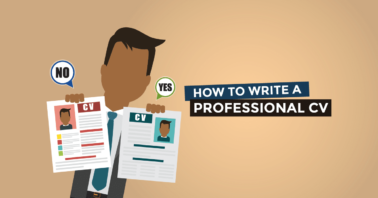Changing jobs is not an easy thing to do but it doesn’t have to be complicated either. Did you know that the average person changes jobs 10 to 15 times (with an average of 12 job changes) during his or her career? This was the outcome of a recent study and it highlights one crucial fact – At some point in your career, you will find yourself at a point where you will have to make a decision on whether you want to hold on to your job or change it.
Sometimes, you are convinced that you need a change but you are also haunted by uncertainties of searching for a new job, finding one, applying and going through the interview phase. It doesn’t end here because even after you have received an employment offer, you still have a myriad of career and workplace issues to contend with.
There are contracts to read and sign. You also have the whole onboarding process and your new colleagues to deal with. You also need to understand your new employer’s processes, products and service. Regardless of whether you are decided or undecided about changing jobs, the following questions can help you make a more informed decision on changing jobs or not.
Table of Contents
Why Am I Changing Jobs?
There could be a plethora of reasons why you desire a change of job.Some of these reasons might include boredom, low salary and benefits, an absence of challenges, a glaring lack of appreciation or unresolved rift with managers or colleagues. It is, however, important to identify your reasons for desiring a or reasons for desiring a change of job.
Once you identify the reason, the next step is to find out if it can be resolved especially if it is an unresolved issue? If yes, then you might realise that you don’t necessarily have to change your job. In any case, remember to find the serenity to accept the things you cannot change and the courage to change the things you can.
What Should I Do To Change Jobs?
The general answer to this question should be to apply for jobs as many jobs as a possible but as a professional, it is best to create a schedule and remain strategic with your job search. Ensure that you identify specifics you want at your next job. This will guide your job search a great deal.
It is important to update your CV, update your profiles on Jobberman, LinkedIn and other trusted jobs platforms. What this does it that it increases your chances of being found by employers searching for the skill set you possess. What this also means is that by updating your profile on the trusted jobs platform, you don’t have to apply for a job before you get contacted by a recruitment manager. In cases where talent acquisition managers have a very short time span to hire, they get proactive by searching through the profile and CV of candidates on trusted websites and shortlist candidates whose skill set match the requirements for the role.
It is advisable to do optimise your CV for every particular job listing that you are interested in before sending out your application. This stage also marks a great time to reach out to trusted friends and old colleagues, mentors and your network and inform about your plans around changing jobs. You never know what opportunities may be lurking for you from them.
Do I Need to Upgrade My Skill Set Before Changing Jobs?
Often times, you will do yourself a world of good when you upgrade your skill set if you have decided on changing jobs. This should be done before you go out to hunt for jobs. A skill set upgrade, as well as the work experience that you have, will present you with an opportunity to bargain for a better pay, better benefits and a better position from a potential employer.
Regardless of your field of specialisation; whether you are a customer service personnel, human resource manager, sales and marketing professional, office administrator, banker or accountant, there many courses and certifications that can improve your skills and make a better fit for the jobs you are applying for.
One vital question you should ask yourself and answer is this, “Do I need a skill set upgrade?” Answer this question as sincerely as you can and you are bound to make steady progress in your quest to land your next job especially when you are nursing the idea of changing jobs.
What Exactly Would You Consider a Better Offer?
You will save yourself a lot of confusion and the proverbial headache by stating in clear terms what you consider a ‘better offer’, especially when changing jobs. This would help you avoid fraudulent offers masked as great opportunities.
Let’s be frank, recruiters and human resource managers can be sweet talkers and part of their KPIs is to hire candidates that are the best fit for the job openings at the best possible cost to the organisation or client that they represent. Once you are considered a great fit for a role, talent acquisition managers will have no trouble sweet-talking you into accepting their offer.
Defining in clear terms what a better offer means to you would include things like the salary range you expect, general benefits, leave and vacation days, how long before you are due for leave after resumption; 3, 6 or 12 months, what career progression and training policies are available I the company, work culture, workload and more.
Wrapping it up, ideally, a job change should translate into an upgrade for you; either on the basis of an increased salary, benefits, career advancement, training and many more. It should add something to your pockets or career. However, all these depend on your need and personal choice. We hope this has provided some clarity if you are looking in the direction of changing jobs? We wish you the best, as always.







